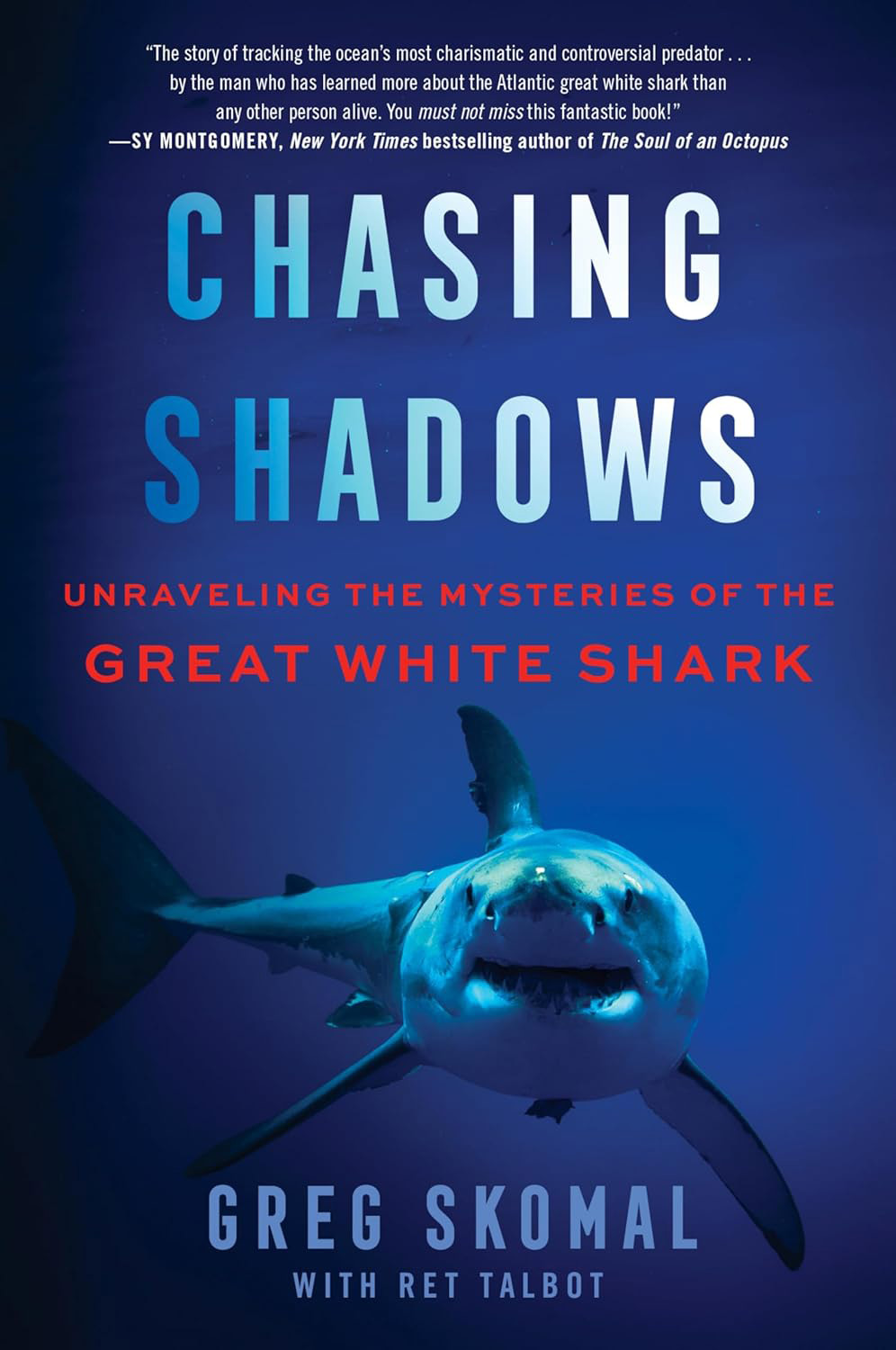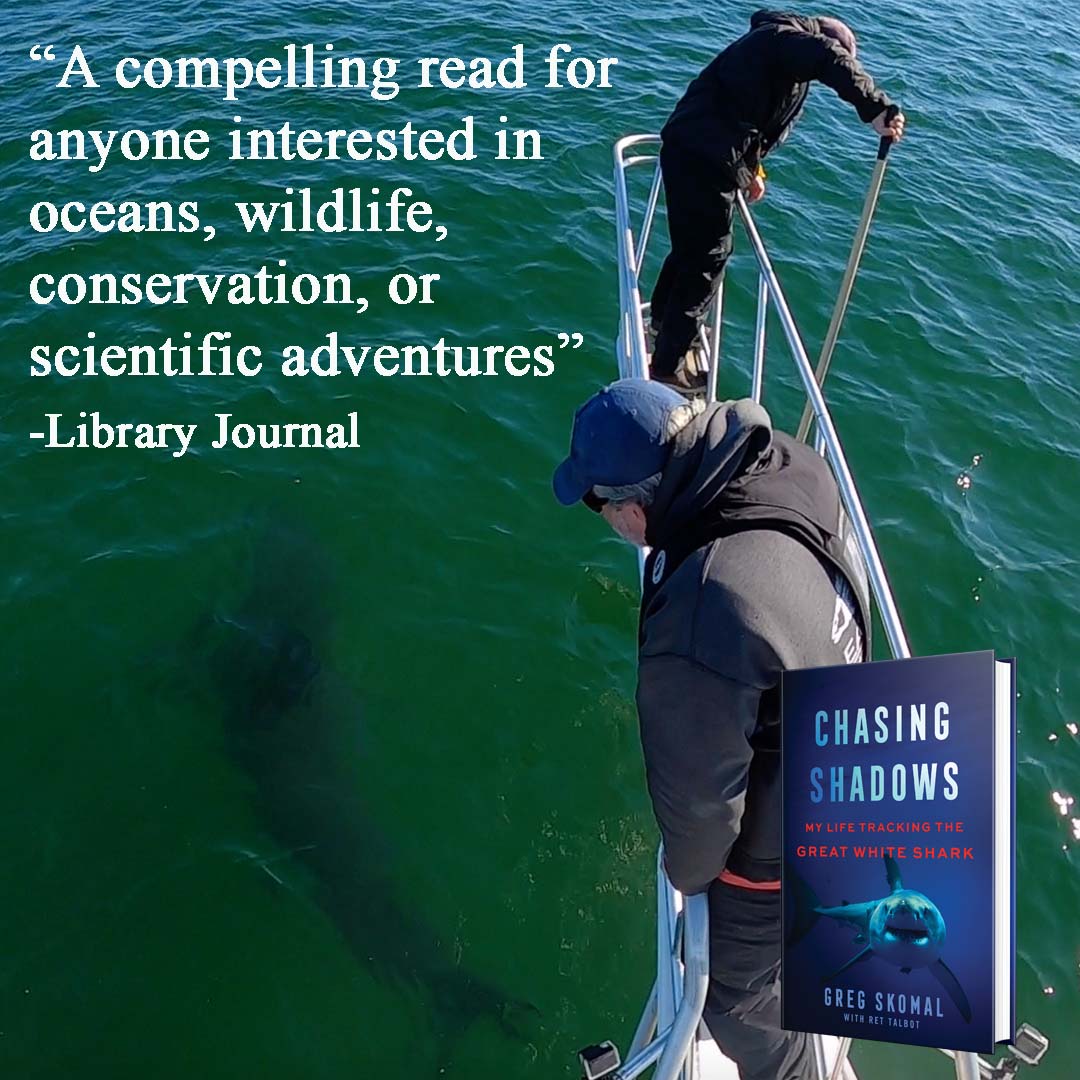
A collaboration between a scientist and a science writer, Chasing Shadows is the remarkable story of the resurgence of the white shark population in the western North Atlantic told largely through the eyes of the shark biologist who found himself in the middle of it. At its heart, it is a too rare conservation success story about restoring an apex predator to an ecosystem. Illustrations and maps by scientific illustrator Karen Talbot. Click here to listen to a sample from the audiobook. Hear an interview with Ret and Greg discussing Chasing Shadows with Brendan, host at the History Nerds United podcast. Hear an interview with Ret and Greg discussing Chasing Shadows with Clay, host at the The Fish Nerds Podcast. Read an essay by Ret and Greg about writing Chasing Shadows in Air Mail. Read an article about Ret's work as a science writer in The Portland Press HeraldEnjoy this free excerpt from Chasing Shadows published with permission on Literary Hub.
“When my late husband, Peter Benchley, started writing Jaws, he thoroughly researched available data on white sharks, but in the early 1970s, scant scientific data existed. Chasing Shadows chronicles the research we’ve learned in the decades since and provides fascinating details about the great white shark in the Northwest Atlantic, why it is an evolutionary marvel, and how it differs from other species of sharks. As a diver and shark advocate for the past fifty years, I reveled in reading the arch of transformation from an era of ignorance to today, where shark conservation is applauded and admired. It offers a stirring but candid account of shark conservation success that addresses the complexities, risks, and ramifications for both people and prey.”
“At last: the story of tracking the ocean’s most charismatic and controversial predator, compellingly told by the man who has learned more about the Atlantic great white shark than any other person alive. You must not miss this fantastic book! I could not put it down.”
“An exhilarating and illuminating ode to the ocean’s most misunderstood gangsters. As seals have gradually returned to the shores of Cape Cod since the 1970s, so too have white sharks, spurring high drama and anxiety in waters thick with swimmers and surfers. Told through the eyes of a leading white shark biologist, this nuanced account of the restoration of an apex predator to its historic range demystifies an elusive creature that’s less monster than fish. A fascinating story filled with wonder and awe, Chasing Shadows seeks to reconcile our primal fear with our ecological conscience, exploring what it truly means to coexist with wild things.”
"Vividly written, gorgeously developed, and as terrifyingly suspenseful as a dorsal fin slicing across the surface, this as-told-to adventure by Skomal and Talbot is far more than a brilliant autobiography of a marine biologist, on the same rolling decks as Eugenie Clark, Jacques Costeau, and Sylvia Earle, because Chasing Shadows is also the story of our profound and critical cultural relationship with sharks and how the controversial return of an apex predator to the North Atlantic might just be the conservation story that we all desperately need to read right now, at sea and on land."
“Chasing Shadows is steeped in awe for a creature both dangerous and endangered, scrutinized and elusive, reviled and revered. Greg Skomal and Ret Talbot ask us to consider all of these things at once, for therein lies the possibility for both humans and sharks to thrive along these shores.”
"The fascinating behind-the-scenes story of the re-emergence of great white sharks on Cape Cod—a tale of science, high emotion, and drama from the man at the epicenter of it all. Chasing Shadows is an absolute page-turner!"
"Jaws made us fear the great white shark. Scientist and leading shark expert Greg Skomal also terrifies us with his first-hand stories in Chasing Shadows. But far more importantly, Skomal makes us all appreciate the creatures for their beauty, their ferociousness, and the vital role they play in the food chain as a key indicator to the health of our oceans."
—Dorian Gossy
|
|
|




